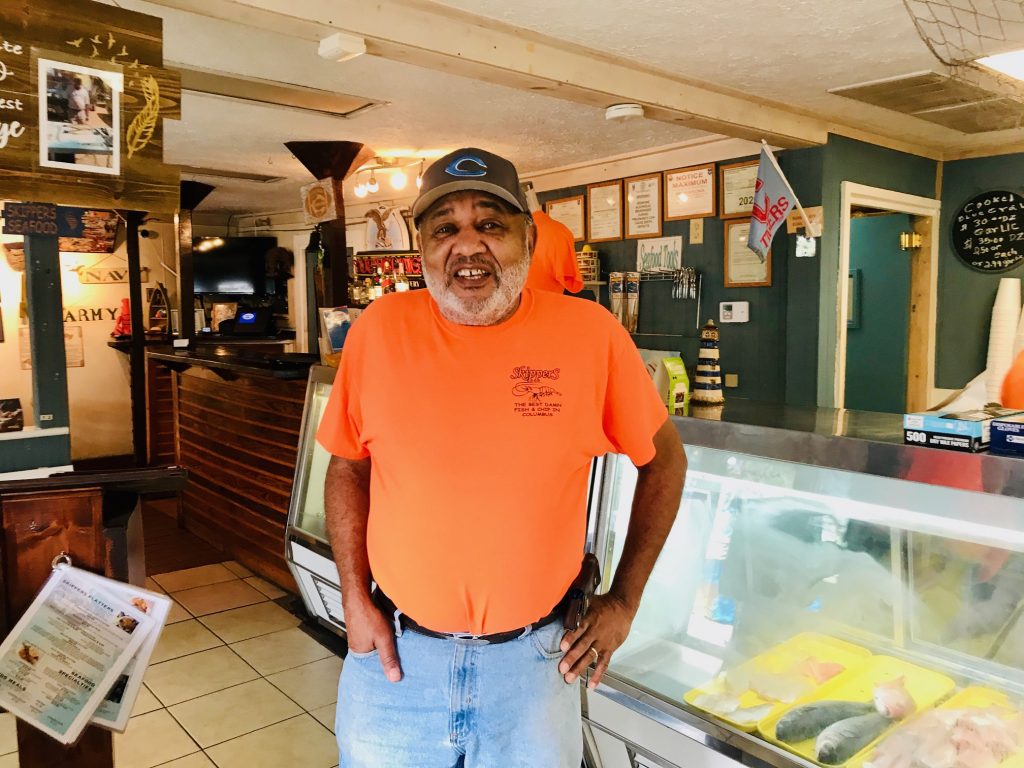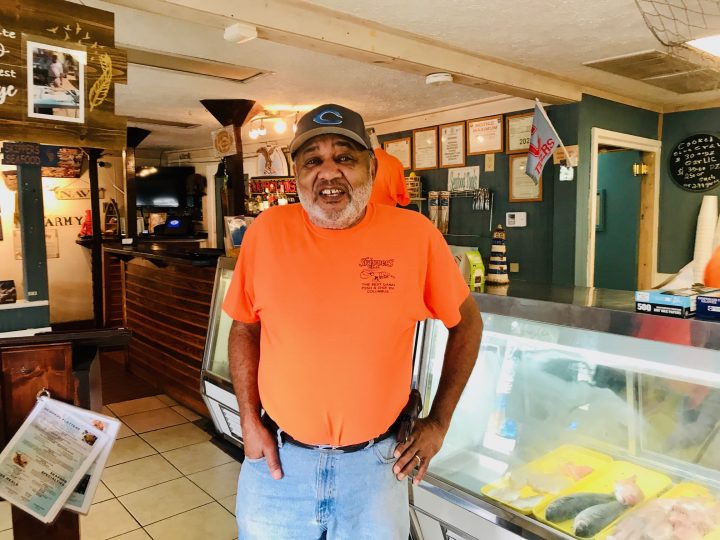
Community Leader / Businessman / Philanthropist
Do you feel that the city’s official MLK Day celebration, The Dream Lives, was hijacked by white people?
“Yes. I sure do.
A friend of mine started that, Wayne Hailes [Publisher, The Courier / Eco Latino]. That’s one thing I can say about getting to know each other in this city. It’s not that my community doesn’t try to get things or do things. But every time we come up on a project where black leaders can lead their community and start instilling pride in their community, there’s always a hiccup, where you invite the rest of the community to come in to work with you. But what winds up happening is, they come in and they want to take it. Especially if they think it’s a great idea.
Now, saying that, yes we do need help with projects that we do. We do need more input. Because that’s the only way we’re going to learn each other. But don’t come in and then take over the project. Work with us. So our community can see what our leaders are doing instead of thinking someone else is doing it for them.
So, yes, it’s been hijacked.”
What is the status of the project you’ve spearheaded, the Martin Luther King Outdoor Learning Trail?
“The MLK Outdoor Learning Trail, that project, I’ve been working on for 5, 6 years now. I’ve had some good assistance with that. I’ve had other people to come in. I don’t like saying black or white. But that’s what I’m talking about. I want the black community to engage in it as well as the white community to engage in it.
I had a sense at one time that it was taking too long to get this project completed. But everywhere I went, doing this for the first time, I learned that it takes time. Because it’s important to me. It’s important to my community. And it’s important to my city.
But the first thing I had to do was basically educate my city about the benefits of this product. If you have a good product, people will buy into it. Including the people you are trying to help. But you have to prove yourself. Being a community leader in this community, the things I’ve done, the lives I’ve touched, I don’t think it should take that long to prove myself.
But it’s coming along good. We’re in the final phases of it. We’re getting the markers along the trail proofread now. We want to dot all the I’s and cross all the T’s and make sure all the grammar is correct. I was hoping to have everything completed for this year’s celebration.
Hopefully, within the next month, we’ll be able to send them for fabrication. And then next year make sure they are up for this occasion.”
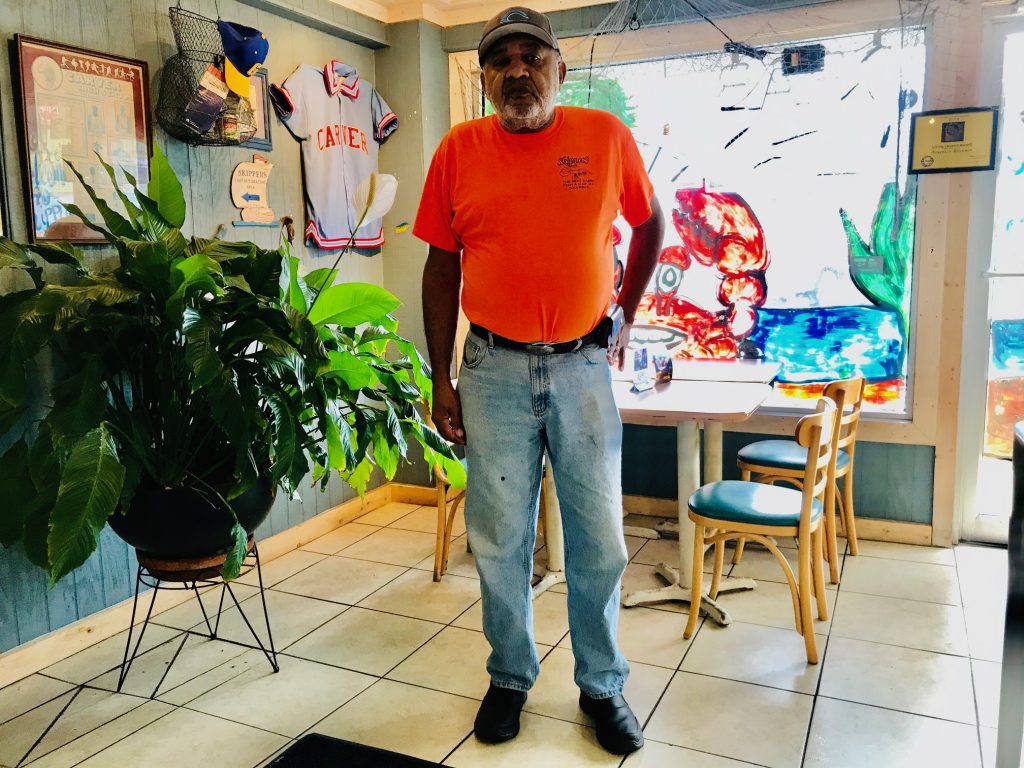
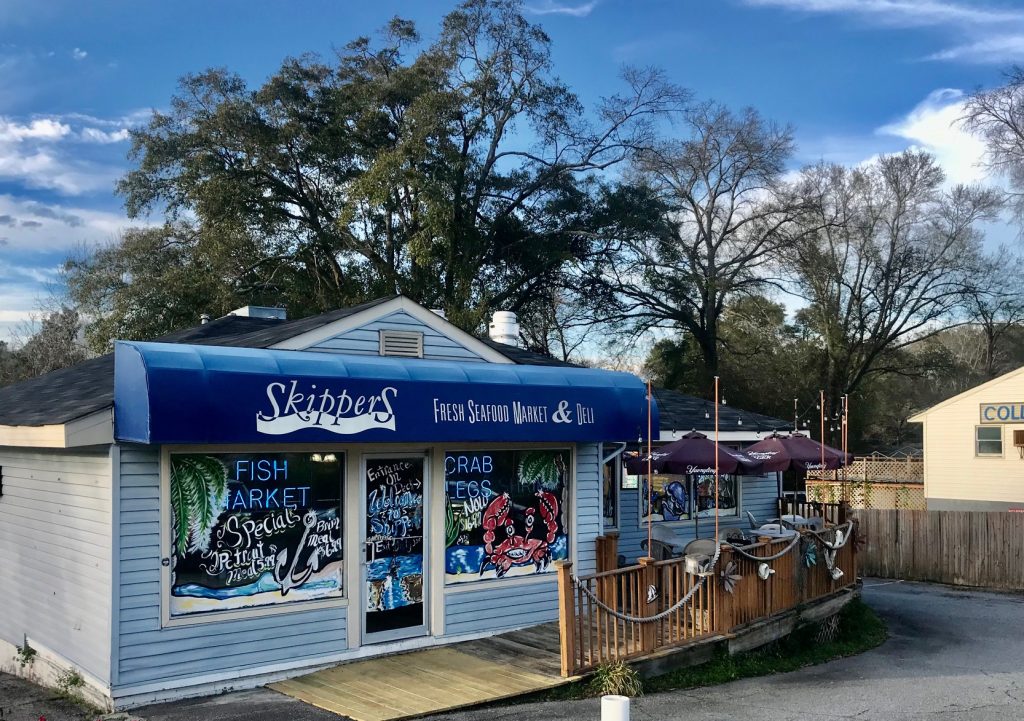
Dr. King’s only appearance in Columbus was marred by controversy and violence.
“My city has truly improved since then. But we still got some problems.
We had two leaders to come along at the same time. In my city, we had Dr. Thomas H. Brewer fighting for Civil Rights and equal justice. He was assassinated. So that set us back.
When Dr. King came here, there were a lot of threats to the community: ‘If you let him in your church, we’re going to bomb your church. We’re going to retaliate on you.’
So when Dr. King came, he had a hard time finding a place to speak. The masons at Prince Hall extended the invitation for him to come their lodge and speak. They had people watching on the roof, staked out, to try and keep someone from coming in and bombing the Prince Hall, things like that, trying to make people feel safe. Because the tragedy with Dr. Brewer put fear in them.
I think that’s why he only came here once.”
Is that part of the reason why the NAACP called Columbus ‘the toughest town to organize in’ during the Civil Rights Movement?
“Columbus is a hard nut to crack.”
Were you disappointed that, when the FBI a few years back opened up cold-case files from the Civil Rights, there was no re-investigation of Dr. Brewer’s death?
“I was somewhat disappointed. But it didn’t surprise me. Because Dr. Brewer was such a strong man. Like I said, Columbus is a hard nut to crack. But everyone that is working on this problem has got to have an honest heart to grow like we should be growing.”
Does the younger generation know enough about the history of the Civil Rights Movement?
“No. That’s one reason, one purpose, for the Outdoor Learning Trail. By documenting the history of African Americans of this city that have made great contributions and lost their lives to try and bring this city together. Our young people don’t know anything about it.
It’s important that history is taught correctly. You don’t know where you’re going if you don’t know what you came through getting to where you are now. The Martin Luther King Outdoor Learning Trail is going to show how we have lived, not together, but how we’ve made great contributions to this city. If we come together, live together, teach each other, that’s way forward.
You know, some things you do in life, and when you look back over them, you can see the injustice. You can see the hatred. But you have to own up to what you did. Ask for forgiveness. And then the people that these things were done to, as a people, got to learn how to accept that apology and forgive and move on.”
What is the mission of your nonprofit, Turn Around Columbus?
“The inspiration for Turn Around Columbus is basically to not just educate my community not just on the achievements of African Americdanws in Columbus. But educate them so that they can do better. CiviL Rights was good. Integration was good.
But when they Killed Dr. King, they basically killed the Dream. They killed the dreamer. No one knew where to go or what to do. Integration hurt us, because we didn’t know how to accept it. Integration you can compare to slavery. When we were enslaved, and Abraham Lincoln signed the Emancipation Proclamation, we didn’t know what to do. A lot of slaves didn’t want to leave the master because they’d been slaves all their lives and been told what to do.
Muhammad Ali said, ‘Kill the head and the body dies.’ That is true. So what wound up happening, they had taken integration, and they looked at it and saw a way to pull money out of our community. It eliminated all of our business. Our community had an opportunity to go any place they wanted to go. They hadn’t been accustomed to that. So what happened, we left our community, we drained the resources out, and brought them to other communities.”
What did winning the Unsung Hero Award at the 2019 Black History Month Breakfast mean to you?
“It meant a lot to me, because they were saying, ‘We see what you’re doing.’ When somebody acknowledges that you’re doing a good job, it takes the edge off. It raises you up. So you can realize that I’m fighting for a good cause and people do see that.”
How do you view the current state of race relations in Columbus?
“Race relations in Columbus is good—but it could be better.”
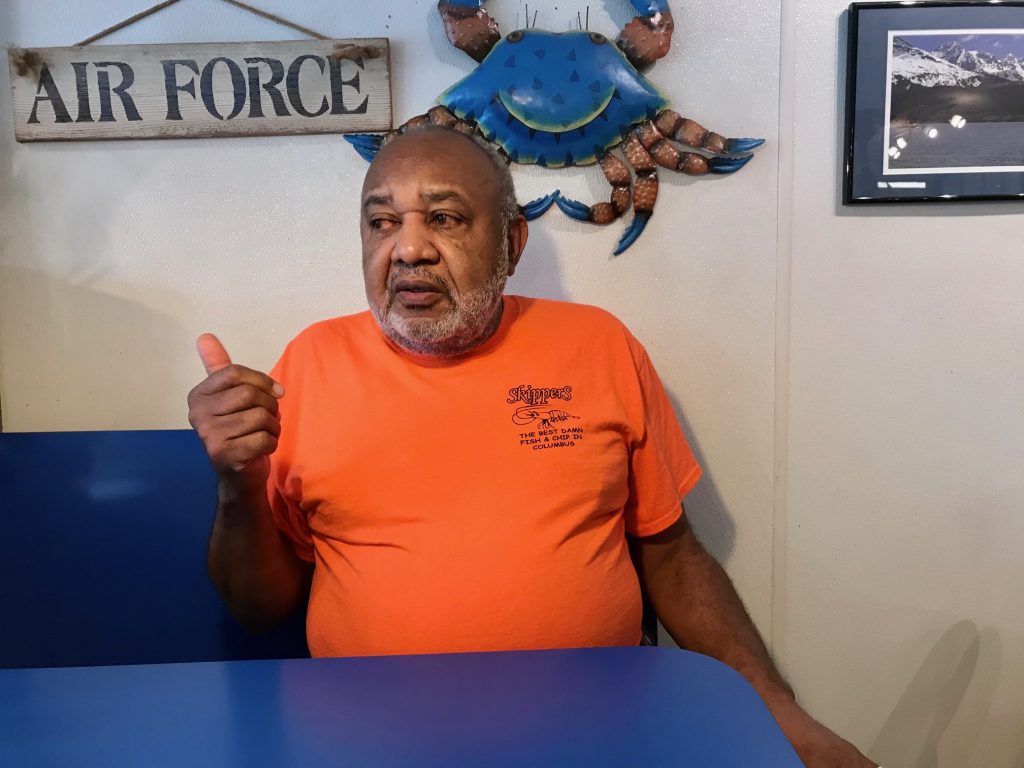
Age: 73
Education: George Washington Carver High School, Class of 1964
Best concert ever attended: Tina Turner
Favorite meal: “The 3-piece catfish filet, whether it’s fried or grilled.”
Best part of being a restaurant owner: “You get to meet a lot of people.”
Worst part of being a restaurant owner: “You get to meet a lot of people.”
Best way to apply the teachings of Rev. Dr. Martin Luther King, Jr. today? “To tell his story. And we have to do it. When I say we, I mean the parents that are rearing their kids now. They have to sit their kids down and talk to them about the things Dr. King accomplished. That’s where the Trail is going to help. But we have a problem doing that. Especially with this young generation, because the young generation doesn’t know the story. The only story we taught was, ‘I Have a Dream.’ We need to teach them about how he got to the Dream, and teach them how they need to have a Dream of their own. We just don’t have the strong leaders that we did back them. Our community has to step up.”
